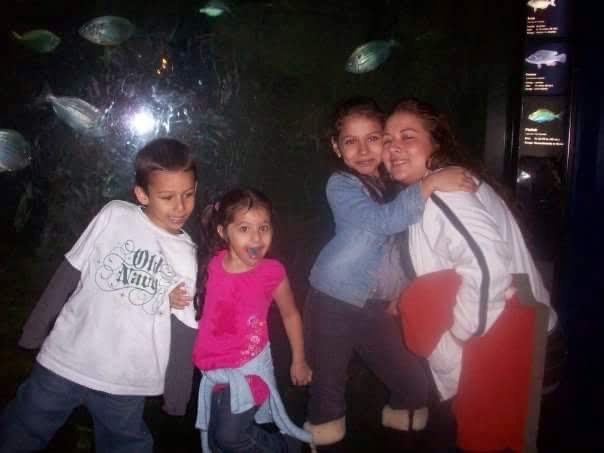By Diana Meza, Class of 2022
It was the sharp and bitter smell of coffee her fiance brewed that brought 17-year-old Maria Garcia to her feet on the bright morning of May 10, 1995.
The warmth of the coffee traveled throughout her body, while her eyes followed him, throwing on his regular white tee and rusty blue jeans, entirely unaware that it was their last morning together.
Due to the high crime rates in Colombia, many flee their homes and most cases, the country, to escape the violence.
According to the Population Reference Bureau, in many cases, after a husband, brother, father, or son has been kidnapped or killed, a woman will leave her village. In the country’s reports, it is estimated that between 275,000 and 347,000 Colombians fled their homes in 2001 as a result of violence and instability in rural areas, with roughly one-quarter of these movements occurring in massive displacement.
Maria started that night ironically celebrating her friend’s decision to immigrate to the states. The night ended at the hospital, where she had to identify her fiancé, 20 bullets piercing his body.
Fearing her fiancee’s enemies, she knew she had to leave her native country, Colombia. On July 25, 1995, she landed in Los Angeles to start a new life.
After a few months of mistreatment from her stepmother, she decided to move close to her best friend in New York. Two years later, she was married and gave birth to her first child. By 2003 she had four children with a man named John.
“It was one of the worst mistakes I’ve ever made. I thought he would help me get my citizenship instead he made my life a living hell,” said Maria. “I spent about 10 years enduring emotional, mental, and physical abuse from him and his family because I was illegal.”
Garcia explained that her life with John had put her in desperate situations.
“I remember this so vividly. John would disappear for weeks at a time, Maria said. “He decided he didn’t want to pay for anything anymore and he left. The only thing I had was a mattress on the floor where I slept with my kids.”
“I had nothing. I had to beg the landlord to not kick us out,” stated Garcia. “I had to sell some portion of my food stamps to buy diapers.”
But the relationship she had in Colombia and the relationship with and after John was all too familiar.
“The father of my fifth child was not any better. He did not want to help me at all,” Maria said. “I had to work several jobs at a time and pay for babysitters to look after children while I worked.”
Along with the issues Maria had in her personal life, she faced scrutiny and discrimination.
“Whether I was at work, at my children’s school, even at the doctors, people would call me names and discriminate me because I didn’t speak proper English, because I am Latina and because I had four or five children,” said Garcia. “People would say comments like, ‘People like you are useless. You only come to this country to have kids and live off the government.’ It was humiliating.”
A mother’s job is never easy, add five children who are close in age.
“Each child has a world of their own, imagine dealing with five all at once. Especially during the teenage years,” Garcia said. “I felt like I was going to lose my mind.
Maria explained that her job as a mother is never done but the responsibilities that once weighed heavily on her shoulders, lessened.
“Now that my children are older, I feel like I can think about myself more, said Maria. “My children are my best friends now and they can understand me.”
Because of the COVID-19 pandemic, the lives of many people were greatly affected and even came to a complete halt, including Maria.
“I lost my job because of the pandemic. But it gave me a lot of time to reflect and experiment which I’m grateful for,” said Garcia.
On the website, Mom Powerment, it stated, mompreneurs represent more than 4 million businesses.
Maria and her best friend came together and decided to start their own business doing floral arrangements while experimenting.
“I think it is risky because of the current situation but we’re starting small and hopefully with God’s grace, it’ll grow,” said Maria. “In my 42 years, I’m finally doing something I’m passionate about. I’m doing something for me.”
Garcia currently runs her business from home in Bayonne, NJ, and travels to Queens once a week to meet with her best friend, Adriana.
“Adriana worked in balloon arrangements before and I proposed we do flower arrangements because I love flowers. In reality, we’re both just trying to figure everything out,” said Maria. “I’m truly passionate about having our own business.”
Along with Adriana, Maria’s children play a role in her business.
“My children have been super supportive and they help me with ideas, social media, of course, and even bringing customers to us,” stated Garcia. “Who knows it could be the start of something big, or if not, I know it’ll open new doors for me.”
Garcia joins the ranks of many women around the world who are small business owners. According to the article “The State of Women Entrepreneurs,” on Score.org, approximately 231 million women are starting or running new businesses in 59 countries and according to momempowerment.com, mompreneurs represent about 4 million businesses in the United States.
Maria is not the only mother who started her own business, a Neonatal intensive unit nurse, and mother of three, Blitznel Jasmin Clores, had her catering business in the Philippines before coming to the US.
“I started my business in catering because nursing did not pay well at the time. I wanted to do something bigger and I had the culinary passion to do it,” said Clores. “At the time, I had my first two kids Carina and Robert and it was quite hectic a lot of the time.”
Blitznel explained what started small grew over time.
“At first, we started with serving lunch, Filipino dishes to the offices in the Quezon City area. Then at one point, we got to serve the headquarters for Jollibee breakfast and lunch,” said Clores After that, we branched out to larger events like wedding and Christmas parties for hundreds of people.”
Clores explained she did not want to continue her business when she came to the U.S.
“The biggest challenge is manpower and, I guess, I didn’t have the same resources I had in the Philippines at the time,” said Blitznel.







